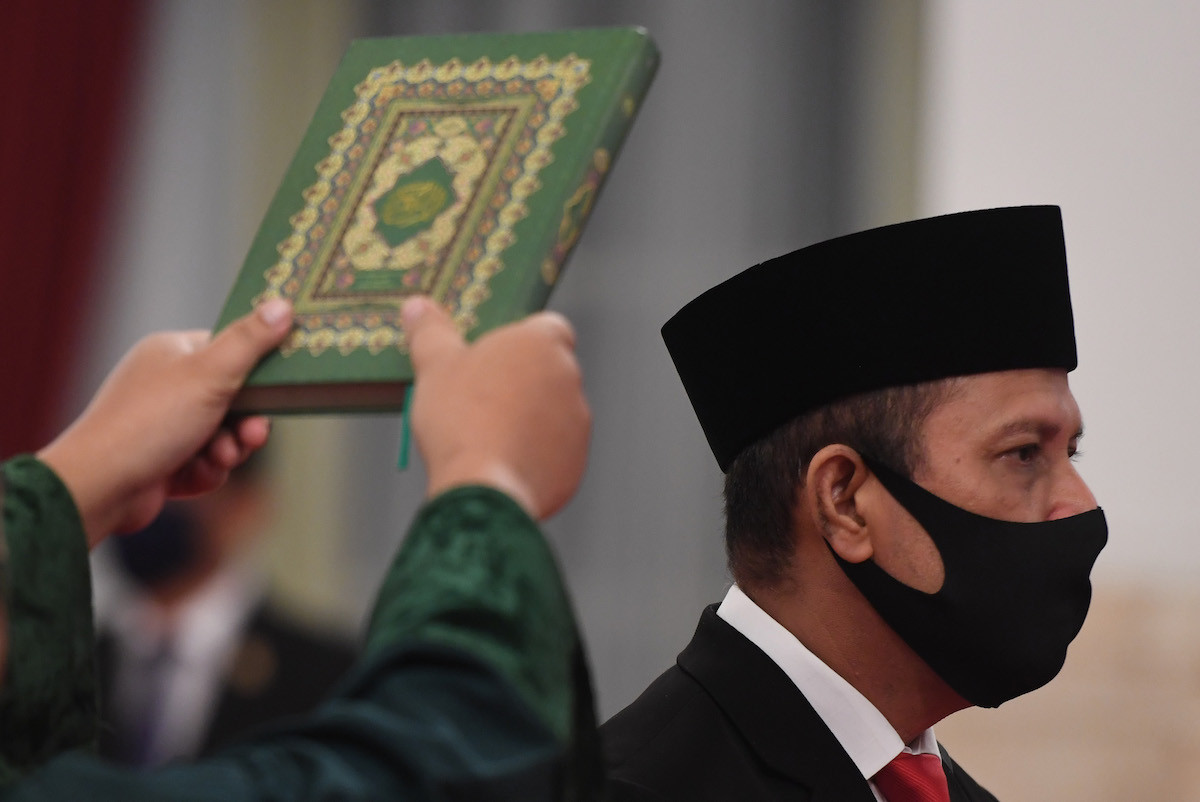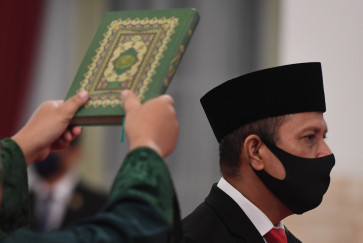Popular Reads
Top Results
Can't find what you're looking for?
View all search resultsPopular Reads
Top Results
Can't find what you're looking for?
View all search resultsNew BNPT chief faces tough challenge of ending deradicalization behind bars
Experts found that around 80 out of the 900 former terror convicts who were released from prison between 2009 and 2020 after serving their sentences had rejoined networks.
Change text size
Gift Premium Articles
to Anyone
T
he new National Counterterrorism Agency (BNPT) chief is facing tough challenges to step up campaigns against violent extremism and the spread of radicalism behind bars.
President Joko "Jokowi" Widodo inaugurated last week police Insp. Gen. Boy Rafli Amar as the new BNPT head replacing fellow police officer Comr. Gen. Suhardi Alius, who had led the BNPT since 2016.
Terrorism expert Noor Huda Ismail said deradicalization efforts in overcrowded prisons across the country, which had become fertile ground for terrorists to recruit and learn from each other, should be Boy's main focus in curbing the spread of terrorism.
“In prisons, the BNPT should join hands with prison guards, who interact with them [the terror convicts] on a daily basis. The BNPT should build the capacity of these [guards to provide counternarratives],” Noor said. “The BNPT should coordinate [counterterrorism efforts] because it cannot do it on its own. It seems easy to build effective coordination, but it is in fact hard to do.”
Noor found that around 80 out of the 900 former terror convicts who were released from prison between 2009 and 2020 after serving their sentences had rejoined terror networks.
About 75 percent of the 80 former convicts returned to society with their capabilities upgraded compared to before they served their prison time, Noor's findings showed. This indicates that a transfer of skills, knowledge and radical ideologies occurred among inmates, possibly of different types of offenses.
Indonesia, the world’s largest Muslim-majority country, has won praise from the international community for its efforts to balance soft and hard approaches in counterterrorism, despite multiple terror attacks in the past few years. The latest incident was in late 2019 when a suicide bomber attacked the police headquarters in Medan, North Sumatra.


















